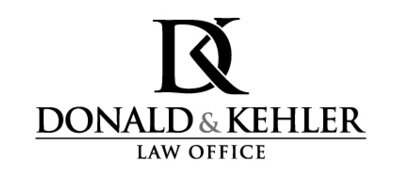Best Land Use & Zoning Lawyers in Brandon
Share your needs with us, get contacted by law firms.
Free. Takes 2 min.
Free Guide to Hiring a Real Estate Lawyer
List of the best lawyers in Brandon, Canada
About Land Use & Zoning Law in Brandon, Canada
Land use and zoning laws in Brandon, Canada, are regulations that govern how land and properties can be used within the city. These rules are designed to organize urban development in a way that accommodates city growth, protects property values, and ensures the safety and wellbeing of all residents. Zoning laws can dictate everything from the types of buildings allowed in certain areas (residential, commercial, industrial) to specifics like building height, density, and proximity to other properties.
Why You May Need a Lawyer
Individuals and businesses may need legal assistance with land use and zoning for a variety of reasons. Common situations include:
- Disputes with neighbors over property boundaries or land use.
- Seeking permits for new construction, expansion, or renovation projects.
- Appealing a decision made by the zoning board or city council.
- Developing real estate projects that require rezoning or variances.
- Compliance with environmental regulations and ordinances.
Having a lawyer who specializes in land use and zoning can help navigate these complexities and advocate on your behalf.
Local Laws Overview
Brandon, like other Canadian cities, operates under a city planning department that oversees zoning codes and regulations. Key aspects include:
- Zoning Maps: These show detailed zoning classifications for different areas across the city.
- Comprehensive Plan: Brandon’s planning strategy to guide city development for the next 20 to 30 years.
- Permitting Process: Necessary for construction and development projects, often requiring formal plans and reviews.
- Variance Requests: Processes allowing property owners to deviate from current zoning laws under certain conditions.
- Environmental Regulations: Guidelines to ensure sustainable development and environmental protection.
Frequently Asked Questions
What is the purpose of zoning laws?
Zoning laws are intended to manage land use in a way that balances competing land uses, supports public services and infrastructure, and encourages orderly city development.
How do I find out what a property is zoned for?
You can refer to the City of Brandon’s zoning maps or contact the city’s planning department for detailed information on a property's zoning classification.
Can I change the zoning of my property?
Changing the zoning of a property typically involves applying for a rezoning with the city, which may require public hearings and approval from the local council.
What is a variance, and how do I obtain one?
A variance is an exception to the zoning ordinance. To obtain one, you must demonstrate unique hardship that justifies the request, and it usually involves a formal application process.
Is a zoning decision final, or can I appeal it?
Zoning decisions can often be appealed to a higher authority within the city, such as a zoning board or city council, especially if there are legal grounds for the appeal.
Are there specific regulations for building heights in Brandon?
Yes, each zoning classification may have specific rules regarding building heights to maintain the character and vision of an area.
What if my neighbor is violating zoning laws?
You can report suspected zoning violations to the city’s planning or code enforcement department, which can investigate and take appropriate action.
How does zoning affect property taxes?
Zoning itself does not determine property taxes, but the use and development of a property according to zoning laws can influence its assessed value, thereby impacting taxes.
What are non-conforming uses?
Non-conforming uses refer to properties that do not comply with current zoning laws but were allowed under previous regulations. They are generally grandfathered in but may have restrictions on expansion or change.
How can I stay informed about zoning changes in my area?
You can subscribe to notifications from Brandon’s city planning department, attend city council meetings, or review public notices online or in local media.
Additional Resources
For more information, consider the following resources:
- City of Brandon Planning Department: Provides detailed information on zoning laws, maps, and permits.
- Brandon Zoning Board: Handles appeals and variance requests.
- Local Real Estate Attorneys: Lawyers specializing in land use and zoning can provide personalized advice and assistance.
- Brandon Municipal Government Website: Offers access to city ordinances, meeting minutes, and public hearings.
- Environmental Protection Agencies: Agencies provide guidelines and help ensure compliance with environmental laws and regulations.
Next Steps
If you need legal assistance with a land use or zoning issue in Brandon, consider taking the following steps:
- Identify Local Zoning Lawyers: Research and contact lawyers specializing in land use and zoning law.
- Gather Documentation: Compile all relevant property documents, maps, correspondence, and records for a comprehensive review.
- Consultation: Schedule a consultation with a selected lawyer to discuss your specific situation and potential legal strategies.
- Stay Informed: Keep up-to-date with any changes in local zoning laws by following local news and attending city meetings.
- Participate: Voice your opinions at public meetings and hearings to engage in decisions that could impact your community.
Lawzana helps you find the best lawyers and law firms in Brandon through a curated and pre-screened list of qualified legal professionals. Our platform offers rankings and detailed profiles of attorneys and law firms, allowing you to compare based on practice areas, including Land Use & Zoning, experience, and client feedback.
Each profile includes a description of the firm's areas of practice, client reviews, team members and partners, year of establishment, spoken languages, office locations, contact information, social media presence, and any published articles or resources. Most firms on our platform speak English and are experienced in both local and international legal matters.
Get a quote from top-rated law firms in Brandon, Canada — quickly, securely, and without unnecessary hassle.
Disclaimer:
The information provided on this page is for general informational purposes only and does not constitute legal advice. While we strive to ensure the accuracy and relevance of the content, legal information may change over time, and interpretations of the law can vary. You should always consult with a qualified legal professional for advice specific to your situation.
We disclaim all liability for actions taken or not taken based on the content of this page. If you believe any information is incorrect or outdated, please contact us, and we will review and update it where appropriate.









